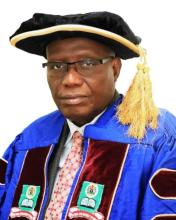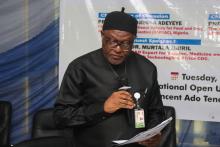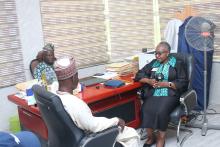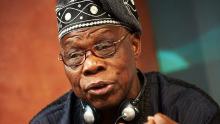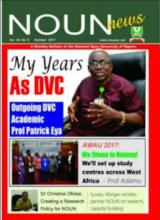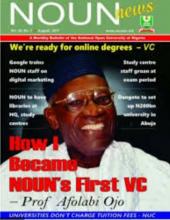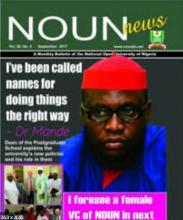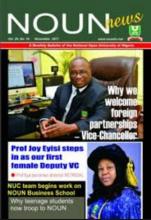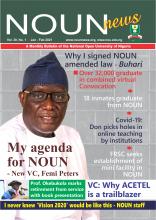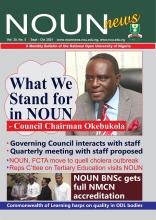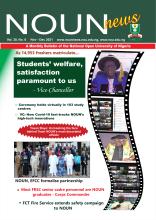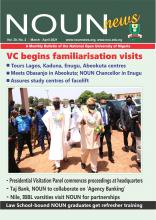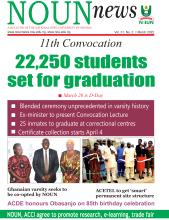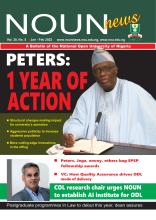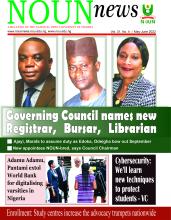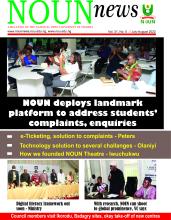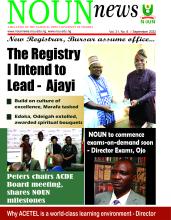
It is evident that the Post-Covid era and other technological innovations have brought about new dynamics with regards to university administration. These new dynamics also demand new skills of administrative officers in order to remain relevant and keep up with emerging trends. Former American President Abraham Lincoln once said “yesterday’s solutions are no longer adequate for today’s problems.” Today’s university administrative officers must dare to be different as there is a growing demand for things to be done differently and efficiently too.
It is no longer business as usual in university administration and as such new skills and competencies are required if relevance is to be maintained. Standards, expectations and requirements that were once accepted are now being challenged and re-defined for global relevance. Universities provide the largest concentration of professionals and intellectuals within any given space in the world. Consequently, the expectation of Administrative Officers is to provide support to these professionals and must constantly be on top in the discharge of their duties.
It is, however, necessary to clarify who administrative officers are within the university system. According to Adegbite (1994), there are five categories of university administrators, these are:
I. Policy makers who carry out administrative functions : Members of council which is the highest policy decision-making body within the university
II. Academic administrators: This comprises of academic staff who serve as Deans of Faculties and Heads of Unit
III. Professional administrators: Comprising of medical doctors, engineers, lawyers e.t.c. who are appointed to serve in different capacities in facilitating certain functions in the university
IV. Academics in administration : These are academics who are appointed into ad-hoc positions as chairmen or members of committees that advise the University Management in certain spheres.
V. Career administrators: Those appointed into the administrative officer cadre
Before pointing out some of the skills required by 21st century administrative officers, let me first highlight a few reasons why administrative officers need to update their skills.
I. The traditional model of university administration which was largely reactive is now becoming increasingly untenable in an era of technological transformation.
II. Innovative trends reveal that there is now a greater demand on administrative officers (and by extension other cadres of staff in the university) to be more accountable and of high ethical standard in the performance of their duties. This is important in order to enable the institution compete favourably within the Nigerian university system.
Universities world over are witnessing tremendous changes, just as they themselves are agents of change. In view of the foregoing, career administrators need a re-adaptation to remain relevant. In this regard, I would like to suggest some essential skills that 21st Century administrative officers need to possess in order to keep pace with emerging trends as highlighted below:
I. A key feature of the 21st Century university operations is information and communication technology (ICT). Every career administrator must be ICT compliant and leverage on this to facilitate their work. Unlike the past, a greater number of activities within the university and registry in particular are being done using the hybrid mode. Strategic meetings such as Council Senate, Faculty board, Matriculation and Convocation ceremonies are now being held virtually. All the activities listed above are being coordinated by administrative officers and as such possession of the relevant ICT skills is a necessary sine qua non to carry out the tasks.
II. For greater relevance in the 21st Century university system, it is essential that administrative officers are better informed about the “tricks” and essence of their roles. Hence, Officers need to be trained and re-trained on their functions to make them more versatile and competent in-service delivery, such that best practices that will suit each stage of the evolution process can be adhered to. One area of training that needs to be looked into with particular reference to the National Open University of Nigeria is in the area of understanding the various provisions contained in the university laws, conditions of service, miscellaneous provisions acts and institutional regulations.
III. The importance of mentoring cannot be overemphasised. Mentoring programmes are designed to impact competence and bridge generational gaps. It is meant to replicate excellence, job ethics and best practices. In the absence of a solid mentoring programme, it will be a herculean task to build and maintain well-grounded 21st Century administrative officers (many of whom are green-horns and relatively young). In building 21st Century compliant administrative officers, mentoring is critical as the old classes of seasoned administrators are leaving the system. The senior echelon of administrators especially from the rank of Principal Assistant Registrar to Deputy Registrar are enjoined to come up with mentorship programmes for the junior ones in their respective faculties, directorates and units, as professionalism in the Registry is being eroded by this avoidable inadequacy.
Adefemi Oyedipe is a Deputy Registrar, Vice- Chancellors Office, National Open University of Nigeria, NOUN. E-mail: ooyedipe@noun.edu.ng
- Log in to post comments
- 690 views


